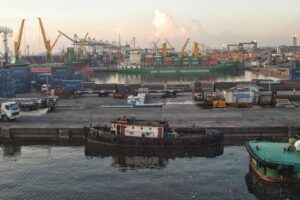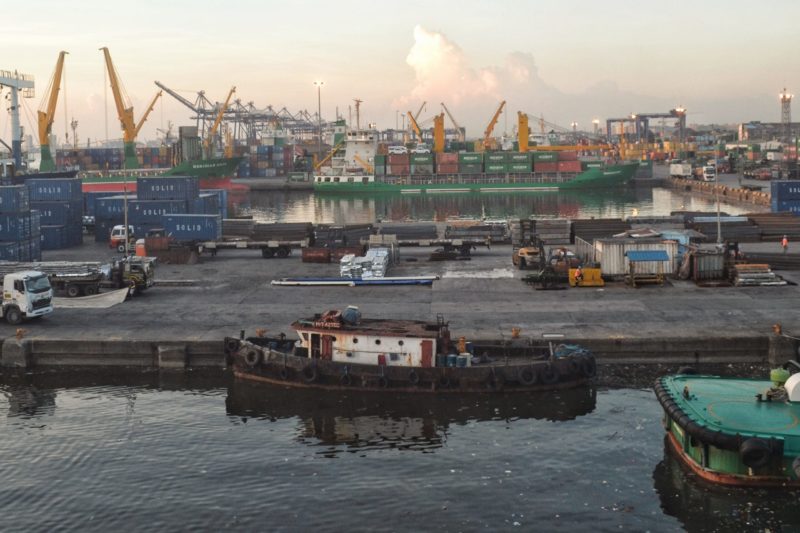
The coronavirus (COVID-19) pandemic and the possibility of 100% foreign ownership in the domestic shipping industry are preventing local ship owners from acquiring new ships, according to industry executives.
Philippine Inter-Island Shipping Association (PISA) executive director Atty. Pedro Aguilar said while shipping lines are set to take delivery of some old ship orders, plans for new ones are on hold due to the pandemic, which has cut passenger and cargo volume.
Speaking at a recent online symposium organized by the Maritime Industry Authority (MARINA), Aguilar said that since March this year, cargo volume of domestic shipping lines has declined by around 70%, while passenger carriage, halted during the enhanced community quarantine, is only up to 50% capacity.
PISA has been asking government since April to waive port charges for ships and suspend the two-day storage period for domestic cargoes. Those, it said, will assist local carriers hit by travel restrictions and community quarantines.
READ: Local shipping lines seek waiver of port charges amid COVID-19 woes
A bill in Congress pushing for the Public Service Act (PSA) amendment is also affecting ship owners’ plans to acquire new ships. If approved into law, the measure will allow 100% foreign ownership in industries previously covered by the Constitution’s 60%-40% ownership rule.
The House of Representatives (HOR) on March 10 approved on third and final reading House Bill (HB) No. 78, which seeks to amend the definition of public service in PSA, or Commonwealth Act No. 146.
HB 78 aims to limit the definition of public utility to any person or entity that operates, manages, or controls for public use the distribution of electricity, transmission of electricity, water pipeline distribution, and sewerage pipeline. The bill seeks to exclude transportation, telecommunications, broadcasting, and other public services from being defined as public services, thus effectively opening them up to 100% foreign ownership.
The Senate version of the bill remains pending at the committee level for deliberation on second and third readings.
Opposed to foreign ownership
Aguilar warned that if the shipping industry is opened to 100% foreign ownership, the domestic sector will just be dominated by big foreign companies.
READ: Retain foreign ownership restriction in domestic shipping, industry associations insist
Philippine Coastwise Shipping Association, Inc. president Paul Rodriguez also earlier said allowing 100% foreign ownership will “totally wipe out small- and medium-sized companies,” considered the “backbone of island province” shipping.
Philippine Liner Shipping Association (PLSA) president Mark Matthew Parco said during the same symposium that plans to buy ships under such a regulatory environment will not likely materialize.
READ: 100% foreign ownership in local shipping to wipe out small carriers, exec warns
He added that comparing rates of domestic and international shipping lines is “not that easy (as) you really have to look at the economics of shipping.” Claims abound that it is cheaper to ship overseas than to ship locally.
By amending the PSA to allow 100% foreign ownership, bill proponents expect to see a reduction in domestic shipping rates as more players come in and offer their services.
Parco noted, however, that shipping follows supply and demand. He said that if there are too many ships, “rates will go down, shipping lines will go bankrupt and then rates will go up again.”
He said what’s important is to “have an even flow so that people can plan their prices.” He added that “we don’t want cycles wherein the rates will go up, the rates will go down.”
He also noted “the government is implementing rules that [are] limiting our capacity to earn.”
His statement is in reference to Department of Transportation (DOTr) Department Order (DO) No. 2020-007 issued last June. The DO orders all domestic shipping lines to allocate no less than 12% of a vessel’s cargo capacity per voyage for the exclusive accommodation of agricultural and food products. It also directs domestic shipping lines to extend a discount of no less than 40% of their shipping rates for all agricultural and food products.
READ: Why mandate shipping space, special rates for food products? ARTA asks DOTr
Parco said government should instead provide a regulatory environment that sustains the local industry for the long term.
Support for public service definition
MARINA franchising service director Atty. Maximo Bañares, Jr. earlier said the maritime authority is one with the domestic shipping industry in pushing to retain domestic shipping as a public service.
In a position paper on the PSA bill dated June 1 and submitted to Senator Grace Poe, chairperson of the Committee on Public Services, MARINA administrator Roberto Empedrad said that while increased competition is a recognized benefit of allowing more players into certain industries, “the case of water transport or shipping should be given special consideration.”
Empedrad noted that unlike other public services, shipping “provides for the main arteries that carry the lifeblood of the country’s inter-island connectivity and socio-economic development through the facilitation of smooth flow of passenger traffic, goods, and basic necessities.”
“This especially holds true since Philippine waters are over seven times larger than the country’s total land area of 300,000 square kilometers,” he added.
Besides its economic significance, Empedrad said water transport plays a critical role in times of national emergencies and political instabilities.
“Its established network of nautical thoroughfare not only along major routes, but also in smaller coastal and inland water areas, has served to ensure the carriage of relief goods to typhoon-stricken areas and as strategic means in the promotion of national security,” he noted.
National security issue
In requesting Congress to include domestic shipping in the coverage of public utilities under the bill amending PSA, the PISA and PLSA have also earlier cited national security as a reason. They stressed that domestic shipping is a strategic industry for an archipelagic country in times of national disasters, response and reconstruction, potential conflict over the West Philippine Sea or war, smuggling, drugs, illegal fishing, and piracy.
The groups also said that opening up transportation “will not bring down domestic transport costs so long as foreign corporations will be subjected to the same operating conditions as domestic transport operators.” They noted that among the contributing factors to the high transport cost of domestic trade are the high operational costs, taxes and regulatory fees. – Roumina Pablo





